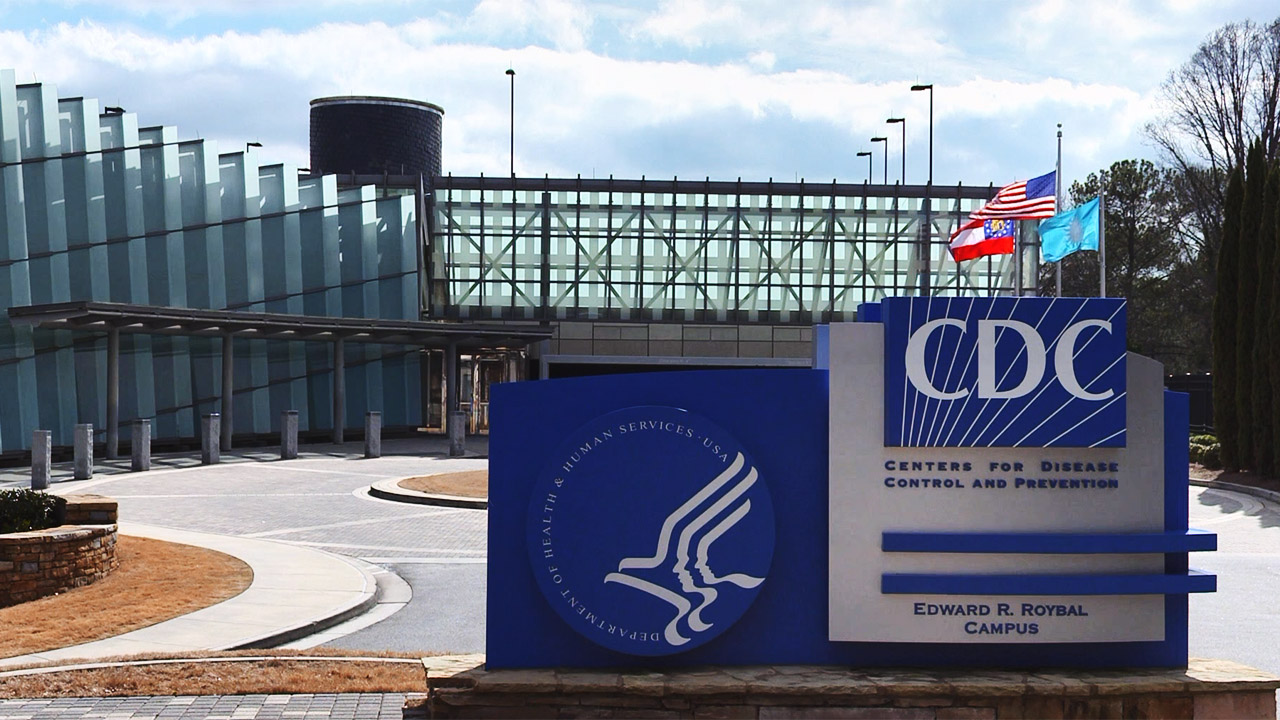Health
YEAR IN REVIEW: ‘story of the year’ countdown
Gay suicides capture national attention along with elections and Prop 8

The story of the year was repeal of “Don’t Ask, Don’t Tell,” but there were many other big stories that kept us busy this year. Here are the rest of the top 10. Compiled by Blade staff writers Lou Chibbaro Jr. and Chris Johnson.
#2 Youth suicides lead to “It Gets Better” Campaign
A rash of suicides committed by gay youths throughout the country this year prompted the “It Gets Better” campaign in which prominent U.S. officials and LGBT leaders advise teens struggling with their sexual orientation that their lives will improve.
Four gay youths took their lives in September, reportedly after they had been bullied because of their sexual orientation. Among those who committed suicide was Tyler Clementi, an 18-year-old Rutgers University freshman who leaped off the George Washington Bridge connecting New York and New Jersey.
In response to the suicides, Dan Savage, a gay Seattle, Wash.-based activist, founded the “It Gets Better” project, an online video channel in which U.S. officials and LGBT leaders urge youth to look to a brighter future. President Obama was among the officials to appear in a video.
#3 Democrats get clobbered in midterms
Democrats this year sustained heavy losses in the mid-term elections and lost control of the U.S. House to Republicans, which will likely kill LGBT rights advances in Congress for at least two years.
Republicans claimed 63 seats in a result that will lead to the ascent of Rep. John Boehner (R-Ohio), who scored a “0” in the Human Rights Campaign’s most recent congressional scorecard, as House speaker. Democrats retained control of the U.S. Senate, but will have a reduced majority of 53 seats.
Still, the LGBT community enjoyed one bright spot in the election through the win of David Cicilline, a gay mayor of Providence, R.I., to the House. Upon the start of the 112th Congress in January, Cicilline will become the fourth sitting openly gay member of Congress.
#4 Proposition 8 court battle
California’s Proposition 8, the ballot measure that amended the state’s constitution to halt gay marriage, has been a non-stop battle in the court of law — and the court of public opinion — since it passed in 2008.
A federal lawsuit seeking to overturn the ban, led by famed attorneys Ted Olson and David Boies, advanced in August, when U.S. District Court Judge Vaughn Walker ruled Prop 8 unconstitutional.
But rather than allowing gay couples to resume marrying in California, Walker issued a stay on his ruling pending the outcome of inevitable appeals. While California state leaders, including Gov. Arnold Schwarzenegger, refused to defend the law, the “Yes on 8” campaign challenged the ruling as expected.
A three-judge panel of the 9th Circuit U.S. Court of Appeals heard arguments in the appeal on Dec. 6, in which supporters of the ban argued that gay marriage “will make children prematurely preoccupied with issues of sexuality.” The appeals panel is expected to issue its decision in 2011.
#5 CDC: 1 in 5 gay men has HIV in cities
Nineteen percent of men who have sex with men in a study of 21 U.S. cities was found to be infected with HIV and nearly half did not know they were infected, according to a report released this year by the U.S. Centers for Disease Control and Prevention.
“This study’s message is clear: HIV exacts a devastating toll on men who have sex with men in America’s major cities, and yet far too many of those who are infected don’t know it,” said Kevin Fenton, director of the CDC’s National Center for HIV/AIDS, Viral Hepatitis, STD, and TB Prevention.
The report, published in September, shows that among the men who have sex with men, or MSM, participating in the 21-city study, young MSM and MSM of color were least likely to know their HIV status.
#6 Three more countries legalize same-sex marriage
Portugal, Iceland and Argentina became the latest three countries to legalize same-sex marriage in 2010, with Iceland becoming the world’s first nation to do so with an openly gay head of state in office.
Lesbian Johanna Sigurdardottir, who became Iceland’s prime minister in 2009, faced virtually no opposition when she and her Social Democratic Party introduced a same-sex marriage bill into the island nation’s parliament. According to Reuters News Service, the legislation passed by a vote of 49-0.
The situation was far different in Argentina, where the Catholic Church raised strong objections to a same-sex marriage proposal backed by the majority-Catholic nation’s president, Cristina Fernandez. But church opposition failed to sway public opinion and a majority of lawmakers.
The action by the three countries brought the total number of nations where same-sex marriage is legal to ten. The other nations are Canada, Netherlands, Belgium, Spain, South Africa, Norway, and Sweden.
#7 Lesbian mayor takes office in Houston
Lesbian Annise Parker was inaugurated as mayor of Houston in January, becoming the first openly gay person elected mayor of a U.S. city with a population greater than 1 million.
Parker became Houston’s first out gay elected official in 1997 when she won election to the City Council. She held her Council post until she won election in 2003 as the city’s controller. She came in first place in her November 2009 bid for mayor but didn’t receive enough votes to avoid a run-off election, which she won in December 2009.
In one of her first actions as mayor, Parker issued an executive order extending non-discrimination protections for city government workers to cover transgender employees.
#8 ‘Kill the Gays’ bill in Uganda draws attention
LGBT and human rights activists across the globe voiced opposition and outrage over a bill introduced into the Parliament of Uganda that calls for strengthening the country’s criminal law against homosexuality to include the death penalty or life imprisonment.
The proposed law, introduced by Ugandan Parliament member David Bahati, who has ties to fundamentalist Christian groups in the U.S., drew opposition from the U.S. State Department and members of the U.S. Congress.
Bahati has said he would not seek a vote on his bill until after the country’s February 2011 elections.
#9 Gay service member held in WikiLeaks scandal
A 22-year-old gay U.S. service member emerged in August as the prime suspect in the investigation of leaked classified documents and videos to WikiLeaks, the controversial whistle-blowing website that has rocked U.S. intelligence agencies.
Army Pfc. Bradley Manning has been held since August in solitary confinement at a brig in the U.S. Marine base in Quantico, Va., while military and civilian authorities continue their investigation into the leaks.
In an instant message conversation with a friend, Manning reportedly said he was responsible for leaking a classified video showing a U.S. Apache helicopter strike in Bagdad that resulted in civilian deaths. Manning, who had been stationed in Iraq as an intelligence analyst, also reportedly claimed to access to 240,000 classified U.S. diplomatic cables that would reveal the inner workings of U.S. embassies worldwide.
#10 Mass. judge rules DOMA unconstitutional
A U.S. District Court judge in Massachusetts ruled in July that the federal Defense of Marriage Act, or DOMA, is unconstitutional because it violates the right of same-sex married couples to equal protection under the law.
DOMA defines marriage under federal law as a union only between a man and a woman and bars same-sex unions from access to all federal marriage-related benefits such as Social Security pensions for married spouses.
Gay rights attorneys said the ruling by Judge Joseph Tauro was an important first step in the quest to either persuade Congress to repeal DOMA or to have it struck down by the courts. The Obama administration, to the disappointment of gay activists, announced it would appeal Tauro’s decision to a federal appeals court.
Health
UNAIDS to commemorate Zero Discrimination Day’s 10th anniversary
UN agency urges global action to protect human rights

As the world marks the 10th anniversary of Zero Discrimination Day; UNAIDS is sounding the alarm on the increasing threats to human rights, calling for renewed efforts to protect the rights of all individuals as a fundamental step towards ensuring health for everyone.
Established by UNAIDS a decade ago, Zero Discrimination Day aims to promote equality and fairness regardless of gender, age, sexuality, ethnicity or HIV status. The progress achieved over the past years is now in jeopardy, however, due to rising attacks on the rights of women, LGBTQ people and other marginalized communities.
UNAIDS Executive Director Winnie Byanyima emphasized the critical link between protecting human rights and safeguarding public health.
“The attacks on rights are a threat to freedom and democracy and are harmful to health,” she said in a press release. “Stigma and discrimination obstruct HIV prevention, testing, treatment and care and hold back progress towards ending AIDS by 2030. It is only by protecting everyone’s rights that we can protect everyone’s health.”
Despite challenges, there has been notable progress.
At the onset of the AIDS pandemic more than 40 years ago, two-thirds of countries criminalized consensual same-sex sexual relations. They are now decriminalized in two-thirds of countries. An additional 38 countries around the world have pledged to end HIV-related stigma and discrimination, contributing to positive changes that include 50 million more girls attending school compared to 2015.
To sustain and enhance these advancements; UNAIDS urges global support for women’s rights movements, LGBTQ rights, racial justice, economic justice, climate justice and peace initiatives. By standing with communities advocating for their rights, the U.N. aims to reinforce the collective effort towards a more inclusive and equitable world.
Zero Discrimination Day is observed on March 1.
Events and activities that will take place around the world throughout the month will serve as reminders of the essential lesson and call to action: Protecting everyone’s health is synonymous with protecting everyone’s rights.
“Through upholding rights for all, we will be able to achieve the Sustainable Development Goals and secure a safer, fairer, kinder and happier world — for everyone,” said Byanyima.
Health
New CDC report finds transgender women at higher risk for HIV
More than 1,600 people in seven cities surveyed

The Centers for Disease Control and Prevention issued a new study report this week that revealed that restricted by employment and housing discrimination and lack of access to needed gender-affirming healthcare for transgender women increasing the risk of contracting HIV.
Researchers reviewed data from a 2019-2020 survey, the National HIV Behavioral Surveillance Among Transgender Women, which found that the demographics of HIV/AIDS have been disproportionally high, especially among Black and Latina trans women, who had experienced employment and housing discrimination coupled with lack of access to gender-affirming healthcare.
The Jan. 25 Morbidity and Mortality Weekly Report was based on data studies of more than 1,600 trans women in seven major urban locales. Participants from Atlanta, Los Angeles, New Orleans, New York, Philadelphia, San Francisco and Seattle were chosen by referrals from people and community-based organizations who knew or were part of the local population of trans women.
The study’s researchers noted: “Employment discrimination occurs at the overlapping nexus of poverty, homelessness, incarceration, health insurance, disability, food insecurity and survival sex work. These issues are interconnected.”
The study stated that trans women’s inability to access quality healthcare, including gender-affirming treatment or access to PrEP, and can expose them to potential incarceration as many turn to “survival sex work” and violence, which increases the risk of contracting HIV.
The study’s author’s pointed out: “When economically marginalized transgender women are refused employment, this refusal cyclically contributes to economic hardships. This analysis …demonstrates the importance of transgender women working and living with dignity and without fear of unfair treatment.”
Health
A Whole New Perspective on Well-Being
The Mather’s team recognizes that everyone’s wellness journey is completely unique to their life experiences and influences.

It’s easy to spot the distinctive, elegant silhouette of The Mather, a Life Plan Community for those 62+ opening this spring in Tysons, Virginia. What is not apparent to the naked eye is The Mather’s unique wellness philosophy, which is literally built into the community.
The Mather’s team recognizes that everyone’s wellness journey is completely unique to their life experiences and influences.
Nature is one of the important factors that contribute to well-being. So The Mather is incorporating biophilic design—a design approach to facilitate access to nature or things that replicate natural patterns. This can include interior spaces with sightlines to a garden, choosing natural wood and stone as interior materials, or incorporating fragrant flowers and plants indoors to spark memories and provide tactile opportunities such as gardening.

“Providing biophilic design within interior settings connects residents to the natural world,” says Mary Leary, CEO and President of Mather, the organization behind The Mather. “Research shows that a connection to nature provides positive benefits to mental states and overall well-being. At The Mather, biophilic design is the intersection of buildings and programs with nature in an urban setting.”
“The Mather is attracting a diverse group of older adults,” says Mary. “As a result, we aim to incorporate wellness practices from around the world, including Wyda movement theory of the Celtic Druids, which helps people achieve harmony with nature and contentment through mindfulness.” This holistic regenerative approach is similar to Qi Gong and yoga, while born in a different part of the world. Mather Institute has a special focus on mindfulness to support older adults’ practice of present moment awareness, which can lead to increased overall well-being, compassion, and joy.
A very different example of a wellness offering at The Mather is the Gharieni Welnamis spa wave bed, which uses computer-controlled vibrational therapy and audio frequencies to train the brain to relax. “The bed increases mindfulness, concentration, and creativity—all of which support our mission of creating Ways to Age Well,SM” says Mary.
These and other personalized ways to wellness will ensure that residents of The Mather can choose from seemingly countless ways to focus on their well-being. In other words, the sky’s the limit!
-

 State Department3 days ago
State Department3 days agoState Department releases annual human rights report
-

 Maryland5 days ago
Maryland5 days agoJoe Vogel campaign holds ‘Big Gay Canvass Kickoff’
-

 District of Columbia1 day ago
District of Columbia1 day agoCatching up with the asexuals and aromantics of D.C.
-

 Politics4 days ago
Politics4 days agoSmithsonian staff concerned about future of LGBTQ programming amid GOP scrutiny










